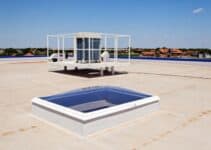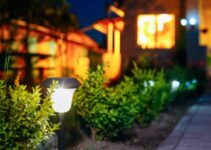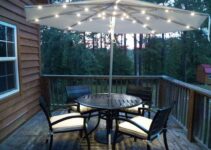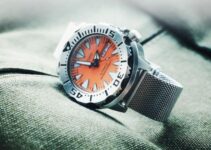With the ever-growing portion of property owners switching to solar electricity, the use of solar panels keeps increasing. Still, a common worry amongst homeowners is, can solar panels get wet? Solar panels are similar to solid glasses. Moisture has no harmful effect on them and can even benefit solar panels.
Conventionally, solar panels should have a weather-resistant design. Yet, it is common knowledge to take your portable solar panels in when it is about to rain. However, while this might be easy for movable solar panels, moving your fixed solar panels isn’t easy every time it rains.
So, you might wonder, what if my solar panels are attached to the roof? Considering the solar panels are always up there, you might be worried if they can withstand the rain and other weather-related stress. If so, then keep reading to discover a more detailed explanation. Dive in!
Can Portable Solar Panels Get Wet?
Portable solar panels are lifesavers for outdoor enthusiasts. With their compact design, they are easy to carry around and install. They provide a source of energy in remote areas and vary in size. Some can power only small electronics such as phones, laptops, cameras, and other mini gadgets.
In contrast, some are big enough to power fridges and TV. So, it’s perfectly normal to wonder if they are at risk of getting damaged when wet. Hence, the question is, can portable solar panels get wet?
A portable solar panel can either be water-resistant or not, depending on the manufacturer and quality of a brand. Those that are water-resistant can get wet, while those that aren’t shouldn’t get wet. Hence, based on the make of your solar panel, it might be at risk of getting damaged when wet.
Generally, water-resistant solar panels are more expensive than those that aren’t. However, non-water-resistant portable solar panels can quickly get damaged when wet. A drop can weaken the panel’s surface and inhibit it from being able to generate electricity.
So, it is vital to ensure that your portable solar panels are weather-resistant before purchase to ensure they can withstand different weather conditions for efficient use.
Are Solar Panels Affected By Rain?
Solar panels get their source of electricity from the sun. So, they cannot be in an enclosed area. However, setting them up outdoors exposes them to all harsh elements of nature, such as wind, snow, and rain.
Therefore, solar panels undergo several reliability tests, such as climate tests and mechanical tests, before manufacturers release them. So, a decent set of solar panels wouldn’t be affected physically by the rain.
Although, you might suffer a loss in the electricity generated due to the lack of direct sunlight. But, your solar panels do not get damaged due to the rain. In contrast, the rain is quite helpful. Rainfall helps keep your panels working effectively by washing off any dirt or debris accumulated on them over time.
It is also vital to note that solar panels still produce electricity despite the reduced energy gotten from the sun during rainy periods. The production of electricity is possible through visible light and infrared light.
There are also solar panels with the specified design to capture an enormous amount of light energy in places with little to no sunlight. Hence, you could purchase one and make the most out of your solar panels even when there isn’t direct sunlight to power your electricity.
Can Solar Panels Be Installed in The Rain?
Suppose you have chosen to install some solar panels in your home, but rain happens to start falling on your scheduled day. Can you still go ahead and install the solar panels during rainfall?
No, you shouldn’t install solar panels in the rain. Solar panels are weather-resistant and won’t be affected directly by the rain, but installing solar panels during the rain is risky. A professional installation company is more likely to reschedule. However, if that isn’t the case, you should request a reschedule.
Installing solar panels in the rain won’t cause the solar panels harm or damage, but there’s a high risk of electrocution. Here is because the solar installation has to do with electricity. In addition, there’s an increased risk of slips on the roof during installation due to a slippery surface. Hence, it’s better to reschedule.
However, suppose you would love to get the installation done as soon as possible. In that case, you can prepare for the installation by installing the inverter in an enclosed area and organizing the roof’s wirings. Afterward, you could install the solar panels themselves when the sun is out.
When done by a professional, solar panels installation does not take long. Generally, an expert can complete the installation within a few hours. So, ensure that you take your time to avoid the installer getting hurt.
Can Portable Solar Panels Resist Rainwater?
Portable solar panels that come with a water-resistant design can resist water. Otherwise, it can’t. A movable solar panel’s primary job is to provide energy when outdoors. Therefore, you can use it during camping, mountain climbing, boating, and other outdoor activities.
Suppose your outdoor activity is near the water, and perhaps you are worried. Most portable solar panels have a water-resistant design and can resist water. Yet, if you are unsure and there is a high probability of your solar panel getting wet, ensure that you protect your portable solar panel from water.
In addition, purchasing a high-quality portable solar panel might reduce its risk of getting damaged after a few minutes in the rain.
Raining is a natural occurrence that could happen anytime. Knowing this, manufacturers of good-quality solar panels ensure that it generates efficient energy even during this period.
The solar panel frames are also made from water-resistant glass panels, so you should have nothing to worry about when it’s raining.
Still, it is essential not to take this for granted because if the solar panel is broken or damaged and water enters the board, it would damage its component.
Do All Portable Solar Panels Come With Waterproof Covering?
Not all portable solar panels come with a waterproof covering. Even though all solar panels should come with a waterproof cover because they are designed to spend over 30 years outdoors, some portable solar panels don’t. You might wonder why?
Perhaps this is because you could quickly move them. Plus, solar panels with waterproof coverings cost more, so some manufacturers produce solar panels without waterproof covers to cut down on their costs since you could quickly move the portable solar panels when the rain begins.
However, it is pretty stressful to move your source of electricity every time it starts to rain. So, while there might be cheaper options for portable solar panels without waterproof covering, it would be best if you opted for those that are waterproof.
It won’t only spare you the avoidable worry of your solar panels getting damaged. You won’t also have to rush out every time it begins to rain to bring in your portable solar panels. How do you figure out which solar panels are waterproof?
Fortunately, it’s pretty easy to figure this out. Solar panels are waterproof due to some materials used for the casing of the internal parts and wirings. Hence, a typical waterproof solar panel will have a front glass sheet protecting the solar panels from elements.
It will also feature a polymer sheet at the back to secure the wiring from any weather-related stress. The two parts are held together by a metal frame. At the same time, a sealant glue is used to prevent moisture from entering the casing.
Thus, you should do thorough research and determine which company’s portable solar panel has these features. If you are unsure, you can ask a professional who’s well versed with solar panels for opinions.
Can You Leave Solar Lights Out in The Rain?
Solar lights last longer than regular bulbs, but they also provide efficient and eco-friendly lighting. Thus, with their ever-growing use by property owners, their durability gets questioned by new buyers. Common questions are, do solar lights get wet? Are solar lights safe outdoors in the rain?
Yes, solar lights are safe outdoors in the rain. The majority of solar lights out there are weather-resistant. Usually, they can withstand any weather, including rainfall, without being affected negatively. A decent solar light can usually handle rain with an IP65 waterproof rating.
Solar lights can also get wet without affecting their efficiency. Thus, if you have some solar garden lights that are constantly exposed to sprinklers, you can be assured that they are safe. Although, you mustn’t intentionally soak these lights in water because most of them are water-resistant, not waterproof.
Still, ensure that your solar lights have a water-resistant rating before buying to protect them from getting damaged by rain, splash and dirt particles.
Frequently Asked Questions
Do Solar Panels Work When Covered In Snow?
When solar panels are covered in heavy snow, they do not work. Solar panels covered in snow cannot produce electricity due to the inability of the sun to hit the panel’s surface directly. Frequent heavy snowfall can also present a problem when weight stresses the support system. However, if it’s light snow, the wind can quickly clear those.
Do You Have To Clear Snow Off Solar Panels?
No, you don’t. You can clean solar panels covered in heavy snow if you are willing to optimize your solar system for enhanced results. However, solar panels are mounted to face the sun and installed at an angle. So, once the sun hits, it melts the snow and slides down your panels immediately.
Do Solar Panels Require Cleaning?
It is basic knowledge that solar panels last for a long time, over two decades. But, does the solar panel requires cleaning during those years? Yes, the solar panel requires cleaning. Although your solar panels won’t exactly suffer a major defect by not cleaning them, there’s a significant risk of a decrease in efficiency if you do not clean them.
How Do You Clean Solar Panels?
Solar panels require minimum cleaning. Therefore, while the rain might wash away accumulated dirt and debris frequently, occasional cleaning with a soft rag and warm soapy water or a solar panel kit will suffice. It will ensure that your solar panels keep working appropriately and producing the optimal solar energy for your home.
Conclusion
Solar panels can seem like a wasteful investment if you live in a cold or snowy region, but it isn’t. Research has shown that solar panels are more efficient in cool areas. This is because solar panels absorb energy from the sun’s light, not heat.
Plus, solar panels are water-resistant, so they can get wet without causing a decrease in your solar power output or damage to its physical structure.






